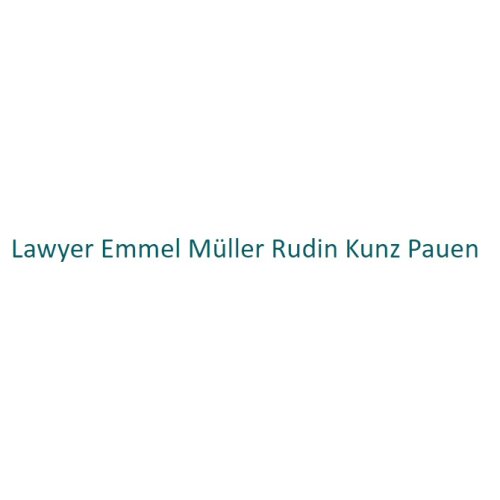Best Employment Rights Lawyers in Switzerland
Share your needs with us, get contacted by law firms.
Free. Takes 2 min.
Or refine your search by selecting a city:
List of the best lawyers in Switzerland
About Employment Rights Law in Switzerland
Employment rights law in Switzerland is designed to protect both employees and employers within the workplace. It is governed by federal laws, such as the Swiss Code of Obligations, the Labor Act, and various regulations that outline the rights and duties applicable in employment relationships. The laws cover areas such as employment contracts, working hours, salaries, health and safety, and the resolution of disputes. Switzerland places a strong emphasis on the balance between work and social obligations, ensuring fair treatment and non-discrimination in the workplace.
Why You May Need a Lawyer
There are several situations where individuals might need legal assistance in employment rights matters in Switzerland:
- Unjust termination or wrongful dismissal.
- Disputes over salary, bonuses, or overtime pay.
- Issues related to workplace harassment or discrimination.
- Questions regarding employment contracts or non-compete clauses.
- Concerns over health and safety provisions in the workplace.
- Clarifying rights and obligations during parental leave or sick leave.
- Assistance with collective bargaining agreements or union-related issues.
Legal guidance can help protect your rights, navigate complex legal frameworks, and ensure fair treatment.
Local Laws Overview
Swiss employment law covers several key areas:
- Employment Contract: Must be agreed upon by both parties, may include probation period, and define employment terms.
- Working Hours: Generally limited to a maximum of 45-50 hours per week, depending on the industry.
- Leave Entitlements: Includes a minimum of four weeks of vacation per year, plus parental and sick leave.
- Termination: Requires adherence to notice periods; terminations must not be abusive or discriminatory.
- Health and Safety: Employers must ensure a safe working environment and comply with federal occupational health standards.
- Non-Discrimination: Swiss law prohibits discrimination based on gender, race, nationality, religion, and other factors.
Frequently Asked Questions
What should be included in an employment contract?
An employment contract should specify key details such as job duties, salary, working hours, vacations, notice period, and any special terms agreed upon.
How much notice must be given for termination?
Notice periods vary but generally range from one to three months, depending on the length of employment and specific terms of the contract.
Are employees entitled to severance pay upon termination?
Severance pay is not mandated by Swiss law except in cases of long-term service or where stipulated in the employment contract.
What are the rules around overtime work?
Overtime work should be compensated with a premium or time off in lieu, guided by the provisions within the employment contract and industry regulations.
Can an employee be dismissed during sick leave?
Dismissing an employee during sick leave may be considered abusive, and protections apply depending on the length of illness and the employment contract.
How can discrimination in the workplace be addressed?
Employees should document incidents, report them to human resources, and may seek legal recourse if the employer does not address the issues adequately.
What is the role of trade unions?
Trade unions play a crucial role in negotiating collective bargaining agreements, advocating for workers' rights, and supporting members in disputes.
Is compensation for workplace injuries provided?
Workplace accidents are generally covered by compulsory accident insurance, which provides financial support for medical costs and loss of earnings.
What constitutes wrongful dismissal?
Wrongful dismissal may include termination without notice, discrimination, or without just cause, especially if contract terms or local laws are violated.
How are disputes between employees and employers resolved?
Disputes may be resolved through mediation, arbitration, or legal proceedings. Early legal advice can often facilitate smoother negotiations or settlements.
Additional Resources
Consider consulting the following resources for more information on employment rights in Switzerland:
- Swiss Federal Office of Justice
- Canton-specific labor offices
- Trade unions, such as Syna or Unia
- Legal aid societies or employment rights advocacy groups
- Online portals providing legal information and resources
Next Steps
If you need legal assistance with employment rights in Switzerland, consider the following steps:
- Gather all pertinent documents related to your employment issue.
- List specific concerns and questions you have regarding your situation.
- Consult with a legal professional specializing in Swiss employment law for personalized advice.
- Contact relevant governmental or labor organization for additional support and guidance.
- Engage in open dialogue with your employer when possible to resolve issues directly before taking legal action.
Seeking the right legal advice can provide clarity and help protect your interests, ensuring your employment rights are upheld.
Lawzana helps you find the best lawyers and law firms in Switzerland through a curated and pre-screened list of qualified legal professionals. Our platform offers rankings and detailed profiles of attorneys and law firms, allowing you to compare based on practice areas, including Employment Rights, experience, and client feedback.
Each profile includes a description of the firm's areas of practice, client reviews, team members and partners, year of establishment, spoken languages, office locations, contact information, social media presence, and any published articles or resources. Most firms on our platform speak English and are experienced in both local and international legal matters.
Get a quote from top-rated law firms in Switzerland — quickly, securely, and without unnecessary hassle.
Disclaimer:
The information provided on this page is for general informational purposes only and does not constitute legal advice. While we strive to ensure the accuracy and relevance of the content, legal information may change over time, and interpretations of the law can vary. You should always consult with a qualified legal professional for advice specific to your situation.
We disclaim all liability for actions taken or not taken based on the content of this page. If you believe any information is incorrect or outdated, please contact us, and we will review and update it where appropriate.
Browse employment rights law firms by city in Switzerland
Refine your search by selecting a city.
















